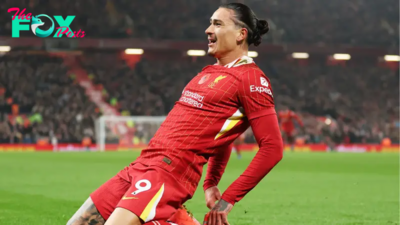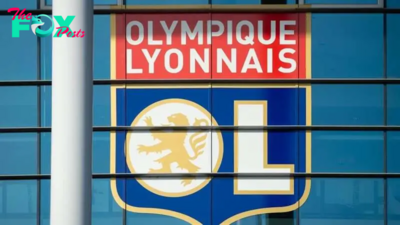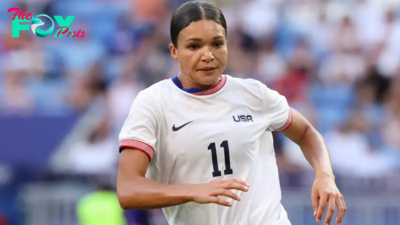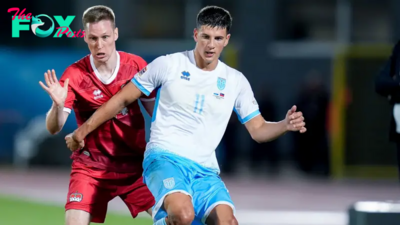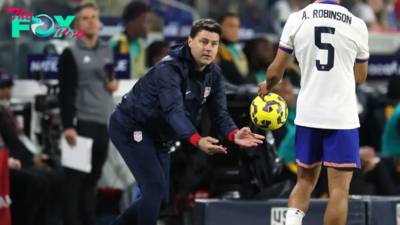Football
USWNT icon Megan Rapinoe, WNBA legend Sue Bird reveal how modern women's sports have changed for athletes
Retired soccer and basketball stars Megan Rapinoe and Sue Bird commended a new generation of female athletes for soaking up the spotlight in a "totally new era of women's Sports," their hopes high that increased investment and attention will allow younger players to build upon a legacy left by those who came before them.
Since Bird's 2022 retirement from basketball and Rapinoe's 2023 retirement from soccer, the pair have watched from the sidelines as their respective sports undergo rapid evolutions amidst the widespread growth of women's sports. That includes the leagues and teams they long represented – both the U.S. women's basketball and soccer teams won gold in Paris over the summer, while the WNBA also grows from strength to strength during a record-setting season for viewership.
Rapinoe recognized that the current crop of female athletes have seized the opportunity, notably so on the U.S. women's national soccer team. She was a pivotal member of the group that won back-to-back Women's World Cups in 2015 and 2019, but a setback at the 2023 tournament ushered in a new generation of talent. Rapinoe said she has enjoyed watching the current group, led by new head coach EMMA Hayes, make the team their own.
"We went through this in our generation," Rapinoe told CBS Sports at ION's Fan ConnectION activation in New York this month. "The older players kind of have to go before the new ones can really step in, particularly our generation. It was so big and loud and dynamic in so many different ways and we were so public for a lot of different reasons – the winning, but also the equal pay – and we really ushered in a new era for ourselves and now they're doing the exact same thing and it was so cool to see them completely step into themselves.
"They're doing all this in their early-to-mid 20's – from [Sophia Smith] and [Trinity Rodman] and Naomi [Girma] and so many other players being able to grab the reins of the team at such a young age is pretty cool and then they'll do with it what they do with it."
Bird has noticed a shift in attitudes between the current crop of female athletes and her generation, who pushed for the improved women's sports landscape that continues to take shape.
"It's really been interesting, even to talk to some of the younger players and just to hear how their lives are and how they're thinking about their business. I wasn't really thinking about my business or my brand," Bird said. "They're so much more aware. They're much more about the entertainment. I think they understand that part. They lean into that part. They're very savvy in that way."
Pushing women's sports forward
Rapinoe and Bird are members of a generation of female athletes that accomplished sweeping labor advancements in their respective sports, including greater salaries and benefits for players across the NWSL, USWNT and the WNBA. Both, though, believe that today's group of female athletes should not only follow in their footsteps to solve the problems they still face but use the momentum of the current moment to their advantage.
"I think it's mostly about continuing to craft a collective bargaining agreement that gives them their rightful share of the business," Rapinoe said. "U.S. Soccer is a not-for-profit but it's a business and they should run it like that. The team should be run like a business and it's a really unique business. I mean it quite literally – it's basically a traveling circus. You have the best talent, you play the best teams, you have landmarks world tournaments every third and fourth year, you have an incredible league … It's just a really exciting time and continuing to keep that energy into the league – growing the league, the attendance and the business around that, the salaries, all of it.
"I think their fight is different than ours but they're in a much better place to actually get a great deal and not just fight for the right to get a deal. I feel like that's what equal pay was – let's just get all on the same page and on equal footing here, and now it's about working together with the federation, with the NWSL to build the best league, hopefully, in the world."
As for basketball players in the WNBA, who recently opted out of their CBA after a historic season, Bird noted they have their own challenges. She pointed to the lengthy offseason, which has become a particular area of focus after Brittney Griner was wrongfully detained in Russia, where she was playing to stay fit and collect a paycheck during the winters. While Bird noted that players are staying at home more often these days, she said there's room for improvement as women's basketball's power players aim to optimize training conditions and salaries.
"Assuming the money does go up in the salaries … players will go overseas less and I think it's really important," Bird said. "When I talk to younger players, I'm like, 'Make sure you're surrounding yourself with people, coaches especially, development, whatever it is, so you're continuing to get better,' because the most important part is that you're a basketball player, is that you're a soccer player. Keep the main thing the main thing."
New roles for Rapinoe, Bird
A transformed women's sports landscape comes not only with new opportunities for current athletes – Rapinoe and Bird have remained active members of the industry through a variety of roles. While Bird has minority stakes in the WNBA's Seattle Storm, where she played for 20 years, and the NWSL's NJ/NY Gotham FC. The pair are at their most visible while recording "A Touch More," their weekly podcast.
Rapinoe joked that the pair started the venture because they "just love to talk, basically [and] we know what people need," though Bird said the podcast is a "natural progression" after informally debuting the project on Instagram Live in 2020. "A Touch More, according to the pair, fills some voids in a sports media structure that has long excluded men's sports.
"I feel like a big part of it -- and we saw it glaringly in the W[NBA] this year -- is that there's not a lot of women talking about women's sports," Rapinoe said. "There hasn't been a ton of players and when it is, it's always on a [male-centric] platform, whether that's Monica McNutt going on Stephen A. Smith or really anywhere … Sue always says this -- we're experts in women's sports and in our particular sports even more so, and so to have the context and the nuance for these narratives is really important. Otherwise, you get people saying crazy-ass shit because that's just what's happening on the internet."
Bird believes media ventures like theirs offer a course correction that has, at times, been sorely needed after decades of derogatory coverage.
"I'll be honest, you kind of need the bad, hot take but then you need us to balance the bad, hot take and that's part of the ecosystem," Bird said. "What's always been missing is that balance. We've had a lot of bad, hot takes in the last 20 years and that's really diminished our brand. I always use ["Saturday Night Live"] – we've been the butt of the SNL joke time and time again and I think that gets digested by people, you know? You go out into the world and people just had a side-eye view of the WNBA but they're having more people talk about what's actually going on. That's changing. We're basically just playing our part."
-
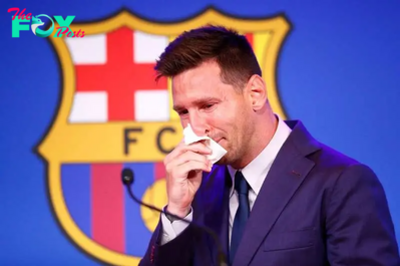
 Football1h ago
Football1h agoBarcelona invite Lionel Messi for long-awaited return
-
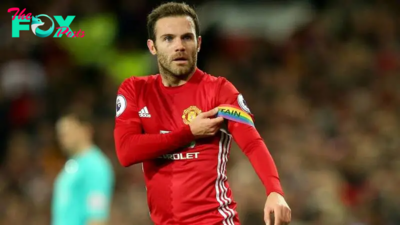
 Football1h ago
Football1h agoWorld Cup winner Juan Mata buys into MLS team
-
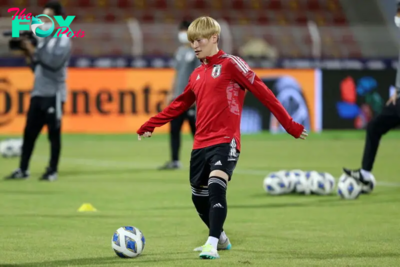
 Football4h ago
Football4h agoCeltic Duo Feature as Japan Win Over China
-
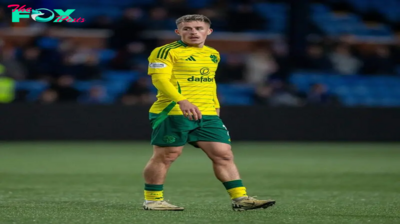
 Football4h ago
Football4h ago“It Sets the Flame” – McCowan Ready to Seize Celtic Opportunity
-
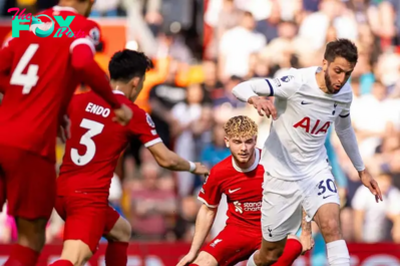
 Football5h ago
Football5h agoTottenham midfielder banned for 7 games over Son remarks – misses Liverpool clash
-
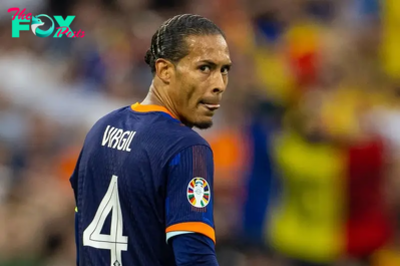
 Football5h ago
Football5h agoGood news! Virgil van Dijk is returning to Liverpool early from Netherlands duty
-

 Football10h ago
Football10h agoHampden Cup Final Tickets: Limited Seats Remain as Deadline Looms
-

 Football10h ago
Football10h agoNicolas Kuhn’s Agent Quashes Ongoing Rumours
